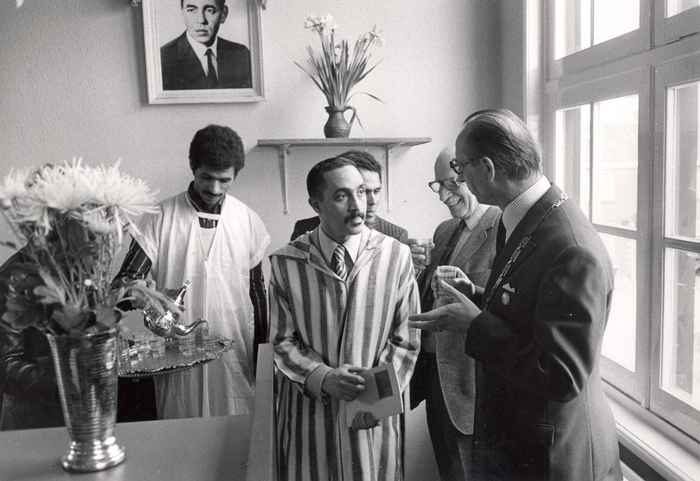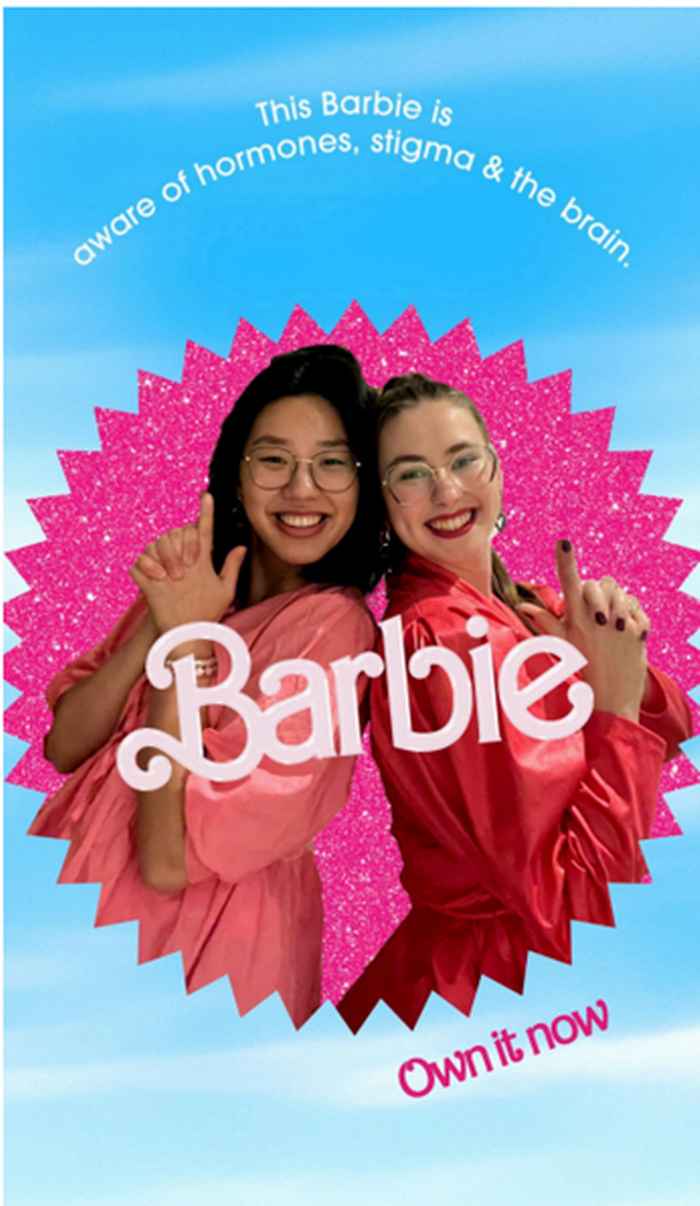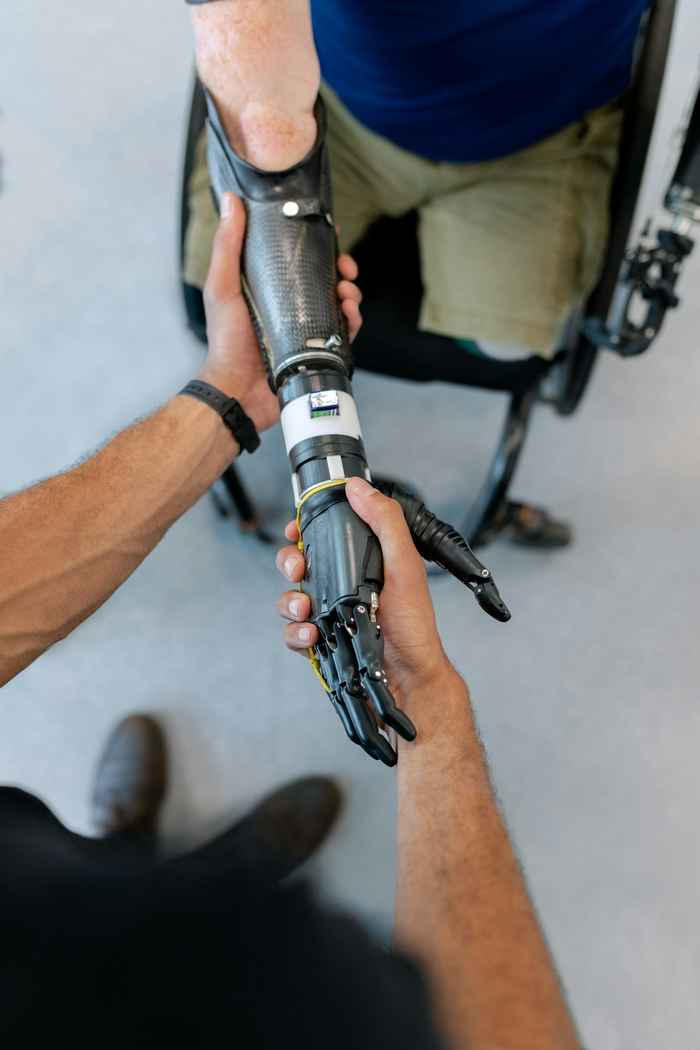Dit zijn de 10 genomineerde ideeën van 2024
De UvA Create a Course Challenge

Emily Sadee – Master Art History
Embodied Ecology is an interdisciplinary course that explores the profound relationship between humans and nature through the lenses of philosophy, psychology, and physiology. Students engage in hands-on activities, including nature walks, field trips to ecological reserves, and reflective journaling, fostering a deep connection to their environment. The course addresses contemporary societal challenges such as climate anxiety and environmental degradation, equipping students with the tools to understand and navigate these issues. Through academic readings, and embodied experiences, students critically analyze how ecological systems impact collective and personal mental and physical well-being. Assessment includes individual assignments and a group project. By integrating experiential learning with theoretical exploration, Embodied Ecology prepares students to become informed advocates for sustainability and well-being in a rapidly changing world, ultimately contributing to the development of informed and resilient societies.

Afon Khari – Maser Brain and Cognitive Sciences
This course equips students with the critical thinking and digital literacy skills essential for the 21st century, as emphasized by UNESCO’s Education 2030 Framework, which highlights “learning to learn, critical thinking, and informed citizenship.” Combining philosophy of science, critical reasoning, and ethics, students will explore how knowledge is constructed, recognize biases, and uphold academic integrity in a world flooded with information. Through debates, case studies, and real-world scenarios, participants will tackle issues like misinformation, the ethical use of AI, and academic integrity. The course incorporates theoretical frameworks such as Kuhn’s paradigm shifts and Popper’s falsifiability, applying them to everyday situations, including evaluating sources and navigating digital spaces. With a focus on “fostering critical and innovative thinking for active participation in society,” this course empowers students to critically engage with academic content and become responsible, discerning members of the global community.

Mohamed El-Hirech – Sociologie en Midden-Oosten Studies
Meer of minder Marokkanen in Nederland? Dat is de vraag die PVV-politicus Geert Wilders in 2014 aan zijn publiek stelde. Het is een gelaagde vraag die de precaire positie van de Marokkaanse gemeenschap in Nederland goed symboliseert. Hoewel Marokkanen tot de grootste migrantengroepen in Nederland en Europa behoren – en daardoor een onmisbare rol innemen in de maatschappij – zijn de algemene kennis en opvattingen over deze groep doorspekt met vooroordelen en onwaarheden die worden ge(re)produceerd in de politiek en in het medialandschap. Daar waar politici en media Marokkanen portretteren als homogene probleemgroep, biedt dit interdisciplinaire vak een rijker beeld en meer achtergrond in Marokkanen als een gelaagde en diverse culturele groep.

Yuval Peled & Timofey Zhalnin – BSc Business Administration & MSc Quantitative Finance
How can we empower everyone to understand and engage with today’s complex economic and societal challenges? This course bridges financial concepts with real-life cases, giving students from all backgrounds the tools to understand and communicate essential economic issues and financial concepts. By exploring real-world events, students will learn how to apply these concepts in journalism, bridging the gap between technical principles and impactful storytelling. Economic and societal challenges — whether inflation, income inequality, climate impact, or global trade — affect us all. Yet, nearly half of adults in the EU lack the foundational knowledge to fully engage with these critical issues. We aim to bridge the gap by equipping students to create well-informed, interdisciplinary narratives that capture the full spectrum of these topics. Students gain hands-on experience by getting a chance to publish in Rostra Economica, the Netherlands' oldest student magazine, making an immediate societal impact. Deepen your understanding, and engage with economic journalism that matters!

Maaike Onstein – Philosophy of the Social Sciences and Humanities
How did Hitlers power came to be? The German population was surely well-educated and smart enough to realize that this could not have been a good idea, right? So, what interdisciplinary processes and systems underpinned this event then? This interdisciplinary course examines the sociological, political, psychological, and communicative mechanisms within the dynamics of political systems. By the end of the course students will be able to recognise patterns of manipulation and abuse of power, not only in past events, but also in contemporary societies. Moreover, they will be able to develop an intervention to undermine the effect of propaganda in a specific contemporary case.

Ana Romanescu – Master Business Administration
Unlock Your Potential with Essential Soft Skills.
Introducing the "Professional Presence and Interpersonal Dynamics" course - an innovative, interdisciplinary program designed to empower you with the essential soft skills needed to advance your career and become a successful leader.
In this dynamic course, you will explore the intricate interplay between communication, psychology, and organizational dynamics. Through real-world case studies, and immersive simulations, you will cultivate a deep understanding of navigating complex interpersonal interactions, building meaningful relationships, and positively influencing those around you.
Employers recognize the immense value of soft skills, and by completing this course, you will gain a significant advantage in the job market. Develop a polished professional presence, hone your emotional intelligence, and learn to lead with confidence - attributes that will set you apart and position you for success in a wide range of career paths.
Become a versatile, future-ready professional and join a community of ambitious students on a transformative learning journey. Invest in your future today and unlock the power of essential soft skills with the "Professional Presence and Interpersonal Dynamics" course.

Yevhenii Stepanov – Media and Culture
Sports are a big and significant part of modern culture, yet they are rarely - if ever - studied as such. This is a glaring omission that must be rectified.
This course would look at sports as a part of popular culture: how they are broadcasted, disseminated, and consumed; how they are (ab-)used for political purposes; and how they provide an opportunity for artistic self-expression.
Difference in broadcasting techniques between the Champions League and Roland-Garros, evolution of sports punditry, historic connections between fashion and sports, sportswashing, influence of cult figures like Diego Maradona and Eric Cantona, role of ultras movements in contemporary politics, Kevin Garnett's trash talk, and similarities between Moneyball (2011) and Ed Wood (1994) - all this and much more will be discussed in this course.

Emilia Bienek and Sissi Chen – BSc Psychology and MSc Biomedical Sciences
Dive into the dynamic world of psycho-neuroendocrinology with “Sex, Stigma, and Steroids”, an interdisciplinary course decoding the complex influence of hormones on behavior, mental health, and societal biases. You’ll gain insights into brain function across diverse groups, learning how these shape experiences in academia and the workplace, while challenging stigma surrounding mental health. Through engaging lectures from experts in various fields and collaborative projects, you’ll explore how hormones shape identity and influence behavior. From anabolic steroid use and hormonal birth control to ADHD and addiction, we will dive into cutting-edge research on hormonal fluctuations and their impact on everything from concentration levels to addiction risks—even choices of potential partners! This course will empower you to promote understanding and inclusivity in your community, equipping you with tools to advocate for meaningful change. Discover how your unique perspectives can contribute to reshaping societal attitudes toward hormones and mental health.

Marten Fleminks – Master Software Engineering
Throughout history, medical and technological advancements have expanded what we as humans are capable of, in ways we often don't realize. These days, it seems science is only speeding up. The first gene-edited babies have been born, a man with prosthetic legs ran in the Olympics and Elon Musk wants to connect our brains to the internet. This raises all sorts of questions: How long until you can control my computer with my mind? Can we become immortal? Would you even want to? What if someone hacks your legs? Will your boss expect you to get new hands to type faster? We may be headed to a utopia where no-one gets sick, or a dystopia where your pacemaker requires a subscription. Join us in exploring the opportunities and risks of transhuman science. Learn what new technologies are up-and-coming, how they can be used and abused, and how we can make sure they only make us better.

Milena Wild and Alexia Gheorghe – PPLE
Curious what climate change, AI, populism, quantum computing, epidemics, and financial crises have in common? All of them relate to the umbrella term of Black Swans – hardly predictable and rare, yet very impactful events. In our globalized, technologized world, Black Swan events constitute the biggest challenge faced by current managers, leaders, and experts: to anticipate, prepare for, respond to, or even recognize Black Swans is hard, but precisely the reason why this course deals with questions such as: what are Black Swans? Why can we not predict their occurrence and how do particularities of historical Black Swans tie into this? Thinking (and teaching) outside-the-box, this course draws lessons from real world examples from various fields: politics, psychology, philosophy of science, quantum physics, and AI. This brings us to the core question of this course: should we strive to better predict future changes or prioritize flexibility and resilience in approaching them?